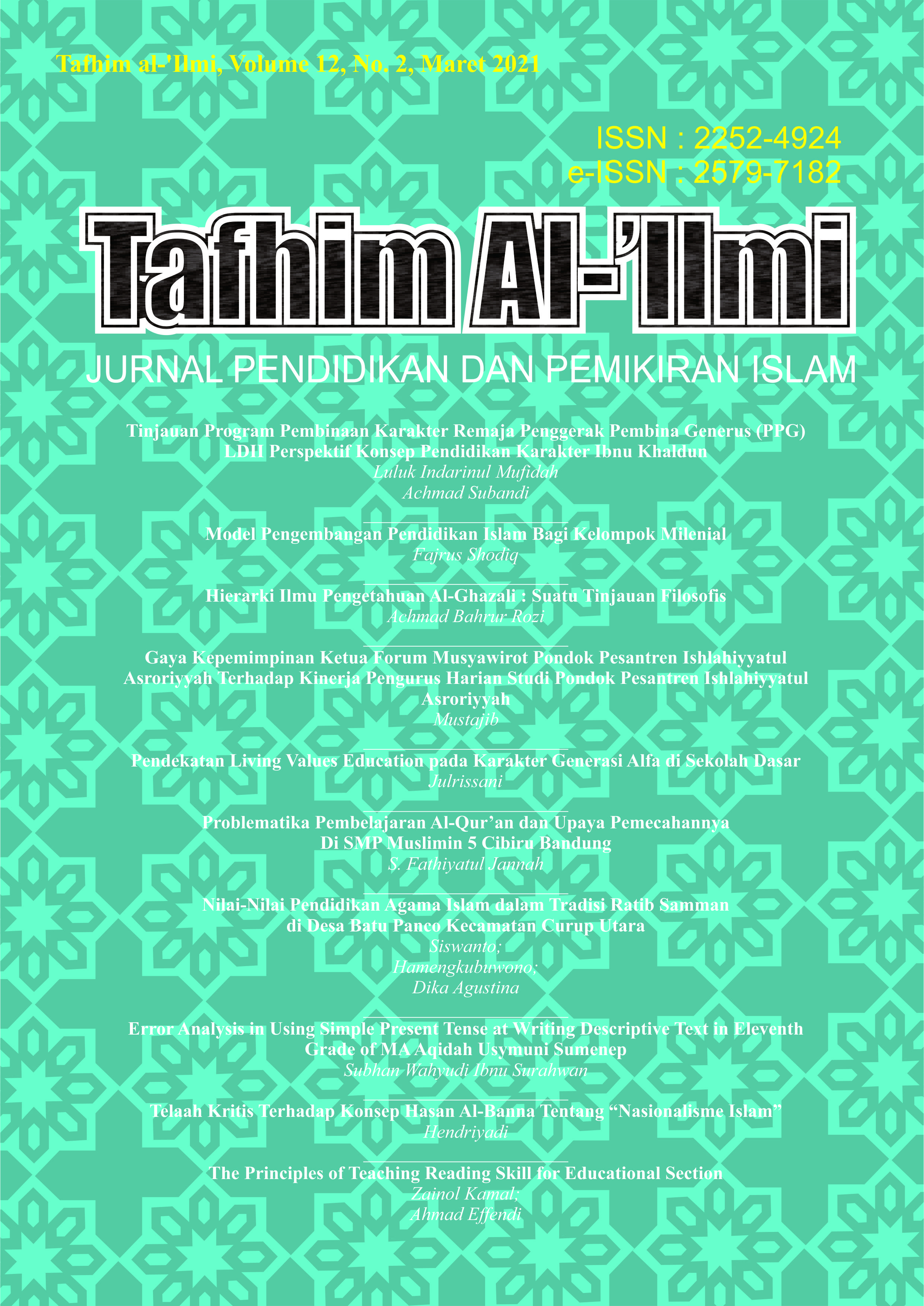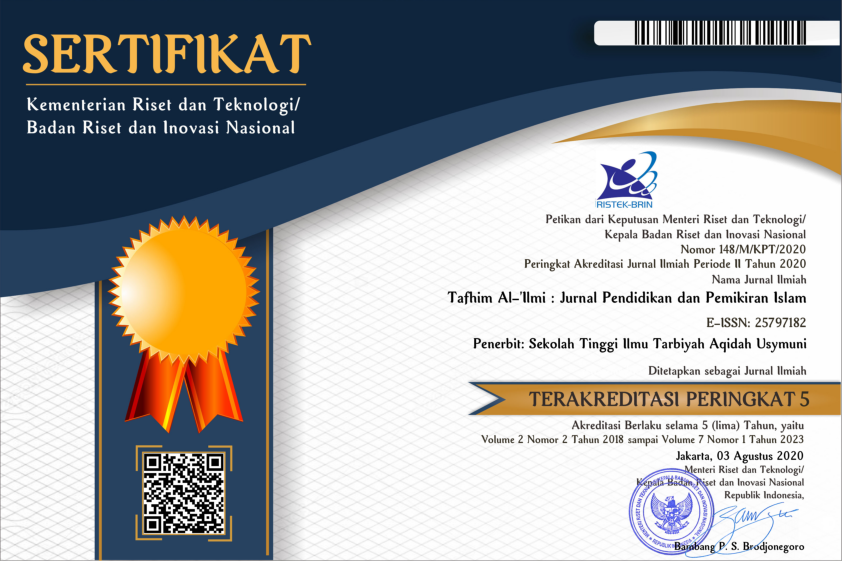Hierarki Ilmu Pengetahuan Al-Ghazali : Suatu Tinjauan Filosofis
DOI:
https://doi.org/10.37459/tafhim.v12i2.4453Abstract
Abstract Al-Ghazali was a complete Muslim thinker. His thinking included almost all the discipline of knowledge from theology, fiqh, philosophy, mysticism, to education. This study attempts to explore the ideas of al-Ghazali in mapping science according to its hierarchy in this application of life, as well as explicitly the practice of learning in the world of education (Islam). He divided the science on three global scales by way of epistemologists, ontologists and axiologists approaches. This classification is then translated into four classification systems. First, it cascades its sciences into a theoretical and practical science. Second, huduri knowledge and husuli knowledge. Third, religious (Syari'ah) and rational ('aqliyah), and fourth fard 'ain (compulsory over each individual) and fard kifayah (compulsory over people). From this hierarchy of al-Ghazali's hierarchy also reveals the value of science, which was briefly embodied in mahmudah (good), madzmumah (reprehensible), and neutral-sometimes praiseworthy, sometimes reprehensible, depending on the circumstances and conditions of the background. Kata kunci : pendidikan, hierarki, ilmu pengetahuanDownloads
Published
2021-03-31
How to Cite
Rozi, A. B. (2021). Hierarki Ilmu Pengetahuan Al-Ghazali : Suatu Tinjauan Filosofis. Tafhim Al-’Ilmi, 12(2), 202–224. https://doi.org/10.37459/tafhim.v12i2.4453
Issue
Section
Articles








